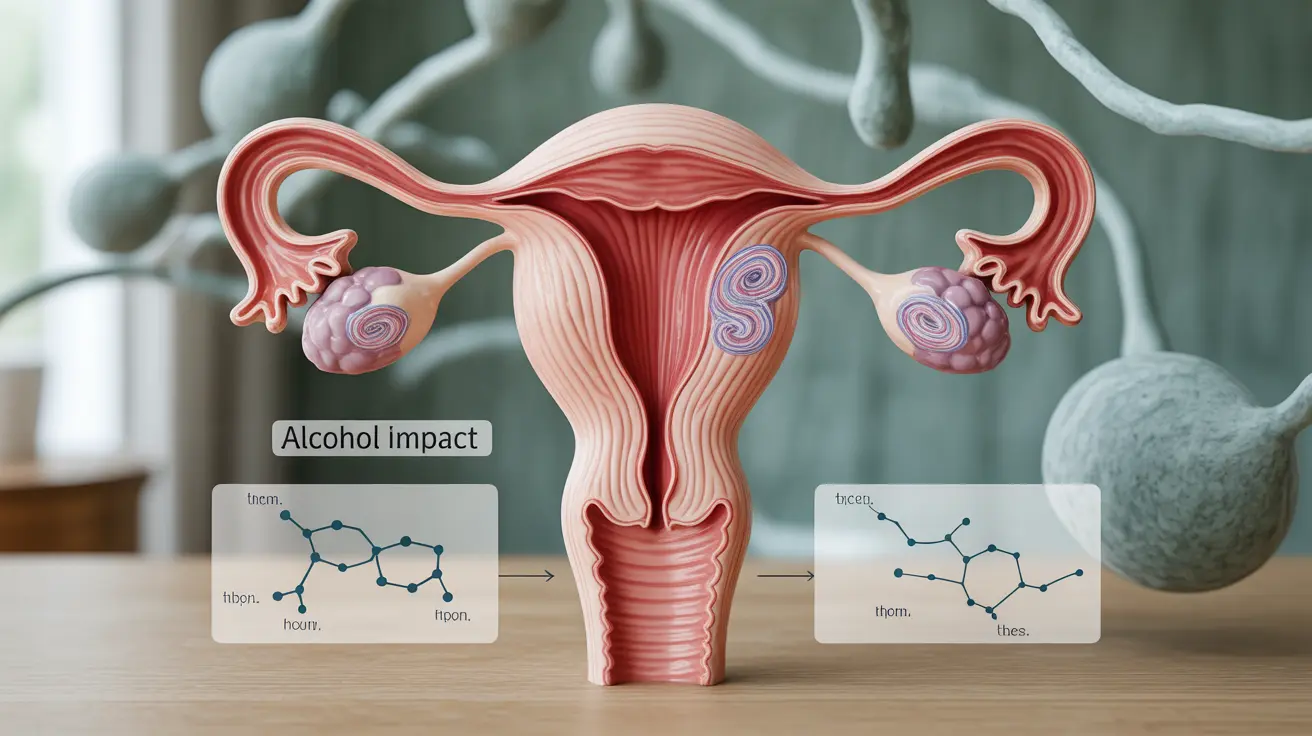Many women experience unexpected vaginal bleeding or changes in their menstrual patterns after consuming alcohol, leading to understandable concern. This connection between alcohol consumption and vaginal bleeding is more common than you might think, and understanding the relationship between these two factors is crucial for women's health.
While occasional alcohol consumption typically doesn't cause serious health issues, its effects on hormones and the reproductive system can trigger various symptoms, including unexpected bleeding. Let's explore why this happens and when you should seek medical attention.
How Alcohol Affects Female Hormones
Alcohol can significantly impact your body's hormone balance, particularly estrogen and progesterone levels. These hormones play crucial roles in regulating your menstrual cycle and maintaining the stability of the uterine lining.
When you consume alcohol, your liver becomes occupied with metabolizing the alcohol instead of properly processing hormones. This can lead to temporary hormonal imbalances that may trigger unexpected bleeding.
Direct Effects on the Menstrual Cycle
Alcohol consumption can affect your menstrual cycle in several ways:
- Disrupting regular hormone production and metabolism
- Affecting the thickness and stability of the uterine lining
- Potentially increasing inflammation in the reproductive system
- Interfering with normal blood clotting mechanisms
Common Causes of Alcohol-Related Vaginal Bleeding
Several factors can contribute to vaginal bleeding after drinking alcohol:
Hormonal Disruption
The most common cause is temporary hormonal imbalance, which can lead to breakthrough bleeding or spotting between periods. This is especially common in women who are sensitive to hormonal fluctuations.
Existing Medical Conditions
Women with certain medical conditions may be more susceptible to alcohol-related bleeding:
- Uterine fibroids
- Endometriosis
- Polyps
- Hormonal disorders
- Blood clotting disorders
When to Seek Medical Attention
While occasional light spotting might not be cause for immediate concern, certain situations warrant medical attention:
- Heavy bleeding that soaks through multiple pads per hour
- Severe abdominal pain accompanying the bleeding
- Bleeding that continues for more than a few days
- Regular occurrence of post-drinking bleeding
- Dizziness or weakness along with bleeding
Prevention and Management Strategies
To minimize the risk of alcohol-related vaginal bleeding, consider these approaches:
- Limit alcohol consumption, especially during your period
- Stay hydrated while drinking
- Keep track of any bleeding patterns
- Consider avoiding alcohol if you have underlying reproductive health conditions
- Maintain open communication with your healthcare provider about your symptoms
Frequently Asked Questions
Can drinking alcohol cause unexpected vaginal bleeding or spotting between periods?
Yes, alcohol consumption can cause unexpected vaginal bleeding or spotting between periods due to its effects on hormone levels and the liver's ability to process these hormones effectively.
How does alcohol affect menstrual bleeding and hormone levels?
Alcohol can interfere with normal hormone production and metabolism, potentially leading to increased estrogen levels and disrupted progesterone balance. This hormonal disruption can cause changes in menstrual bleeding patterns.
Why does alcohol make menstrual bleeding heavier for some women?
Alcohol can increase menstrual flow by affecting blood clotting mechanisms and causing inflammation in the uterine lining. It may also enhance the body's production of prostaglandins, which can increase menstrual flow.
Is vaginal bleeding after drinking alcohol more common in women with fibroids?
Yes, women with uterine fibroids may be more susceptible to alcohol-related bleeding because alcohol can increase inflammation and blood flow to the uterus, potentially exacerbating existing fibroid symptoms.
When should I see a doctor if I experience vaginal bleeding after drinking alcohol?
Seek medical attention if you experience heavy bleeding, severe pain, bleeding that lasts more than a few days, or if the bleeding occurs regularly after drinking. Also consult a healthcare provider if you feel dizzy or weak while bleeding.




